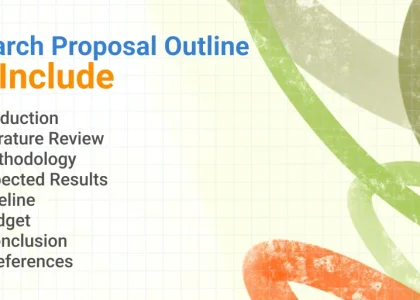Pursuing a PhD is an intense journey that demands meticulous time management. Balancing research, writing, coursework, and personal commitments can be overwhelming. Effective time management is crucial to staying productive and maintaining a healthy work-life balance. This article outlines the top strategies for PhD time management to help you achieve your academic goals without burning out.
1. Set Clear Goals and Milestones
Setting clear, achievable goals is the foundation of effective time management. Break down your PhD project into smaller tasks and set specific milestones. This approach makes the process less daunting and provides a sense of accomplishment as you complete each milestone. Use the SMART criteria to set your goals: Specific, Measurable, Achievable, Relevant, and Time-bound.
Example:
- Goal: Complete the literature review
- Milestone 1: Identify key sources (2 weeks)
- Milestone 2: Read and annotate sources (4 weeks)
- Milestone 3: Write the first draft (3 weeks)
- Milestone 4: Revise and finalize (2 weeks)
2. Create a Detailed Schedule
A well-structured schedule is vital for managing your time effectively. Use tools like Google Calendar, Microsoft Outlook, or project management apps like Trello and Asana to plan your daily, weekly, and monthly tasks. Include all your activities, such as research, writing, meetings, and personal time. Make sure to allocate specific time slots for each task and stick to your schedule as much as possible.
Tips for Scheduling:
- Prioritize Tasks: Focus on high-priority tasks first.
- Avoid Multitasking: Concentrate on one task at a time to improve efficiency.
- Include Breaks: Schedule short breaks to rest and recharge.
3. Use the Pomodoro Technique
The Pomodoro Technique is a time management method that involves working in short, focused intervals, usually 25 minutes, followed by a 5-minute break. After four intervals, take a longer break of 15-30 minutes. This technique helps maintain high levels of productivity and prevents burnout.
How to Implement the Pomodoro Technique:
- Choose a Task: Select a task to work on.
- Set a Timer: Set a timer for 25 minutes.
- Work: Focus solely on the task until the timer rings.
- Break: Take a 5-minute break.
- Repeat: After four intervals, take a longer break.
4. Utilize Time Management Tools
Leverage digital tools to enhance your time management skills. These tools can help you track your progress, organize tasks, and stay focused. Here are some popular time management tools for PhD students:
- Trello: A project management tool that uses boards, lists, and cards to organize tasks.
- Evernote: A note-taking app that helps you capture ideas, research notes, and to-do lists.
- Rescue Time: A time-tracking tool that monitors your activities and provides insights into how you spend your time.
- Forest: An app that helps you stay focused by growing virtual trees when you avoid distractions.
5. Set Boundaries and Say No
PhD students often struggle with saying no to additional commitments. Learn to set boundaries and prioritize your academic work. Politely decline tasks or projects that do not align with your goals or add unnecessary stress. Communicating your boundaries clearly with peers, family, and advisors is essential to maintaining a healthy balance.
How to Set Boundaries:
- Communicate Clearly: Let others know your availability and limits.
- Delegate: If possible, delegate non-essential tasks to others.
- Prioritize: Focus on activities that align with your PhD goals.
6. Practice Self-Care
Self-care is crucial for sustaining productivity and preventing burnout. Ensure you incorporate activities that promote physical, mental, and emotional well-being into your routine.
Self-Care Tips:
- Exercise Regularly: Physical activity boosts energy levels and reduces stress.
- Eat Healthily: A balanced diet fuels your body and mind.
- Sleep Well: Aim for 7-9 hours of sleep per night.
- Stay Connected: Maintain social connections with friends and family.
7. Seek Support and Guidance
Don’t hesitate to seek support from your academic advisors, peers, or a professional coach. Regular meetings with your advisor can provide valuable feedback and keep you on track. Peer support groups offer a sense of community and shared understanding, while professional coaches can help you develop personalized time management strategies.
How to Seek Support:
- Advisor Meetings: Schedule regular check-ins with your advisor.
- Peer Groups: Join or form study groups with fellow PhD students.
- Professional Help: Consider hiring a time management coach or attending workshops.
Conclusion
Effective time management is key to successfully navigating the challenges of a PhD program. By setting clear goals, creating a detailed schedule, using productivity techniques, leveraging digital tools, setting boundaries, practicing self-care, and seeking support, you can manage your time effectively and achieve your academic objectives. Implement these strategies to enhance your productivity, reduce stress, and make the most of your PhD journey.
For more insights and tips on managing your PhD journey, check out our related articles:






